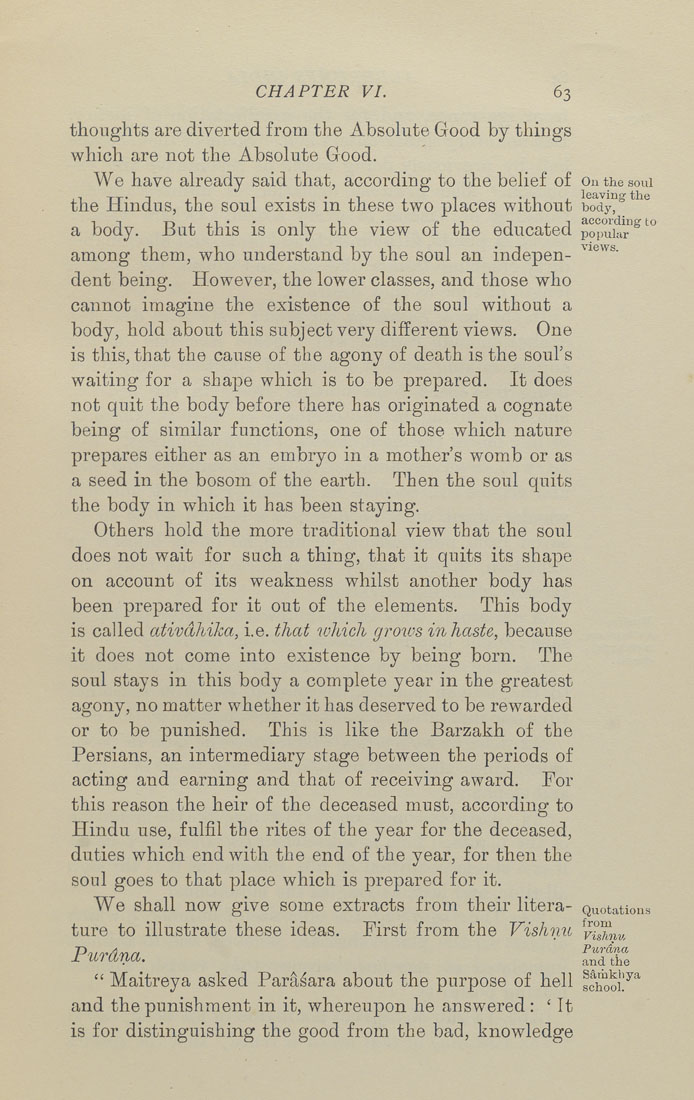Bīrūnī, Muḥammad ibn Aḥmad, Alberuni's India (v. 1)
(London : Kegan Paul, Trench, Trübner & Co., 1910.)
|
||
|
|
|
|
| Page 63 |

CHAPTER VI. 63 thoughts are diverted from the Absolute Good by things which are not the Absolute Good. We have already said that, according to the belief of Ou the soui the Hindus, the soul exists in these two places without body, a body. But this is only the view of the educated popular"^ ^° among them, who understand by the soul an indepen- ^^®^^®- dent being. However, the lower classes, and those who cannot imagine the existence of the soul without a body, hold about this subject very different views. One is this, that the cause of the agony of death is the soul's waiting for a shape which is to be prepared. It does not quit the body before there has originated a cognate being of similar functions, one of those which nature prepares either as an embryo in a mother's womb or as a seed in the bosom of the earth. Then the soul quits the body in which it has been staying. Others hold the more traditional view that the soul does not wait for such a thing, that it quits its shape on account of its weakness whilst another body has been prepared for it out of the elements. This body is called ativdhika, i.e. that 'u-hich grows inhaste, because it does not come into existence by being born. The soul stays in this body a complete year in the greatest agony, no matter whether it has deserved to be rewarded or to be punished. This is like the Barzakh of the Persians, an intermediary stage between the periods of acting and earning and that of receiving award. For this reason the heir of the deceased must, according to Hindu use, fulfil the rites of the year for the deceased, duties which end with the end of the year, for then the soul goes to that place which is prepared for it. We shall now give some extracts from their litera- Quotations ture to illustrate these ideas. First from the Viskmc ^vi^nu PurdTia. and the " Maitreya asked Parasara about the purpose of hell schooh'^'^ and the punishment in it, whereupon he answered : ' It is for distinguishing the good from the bad, knowledge |
| Page 63 |







